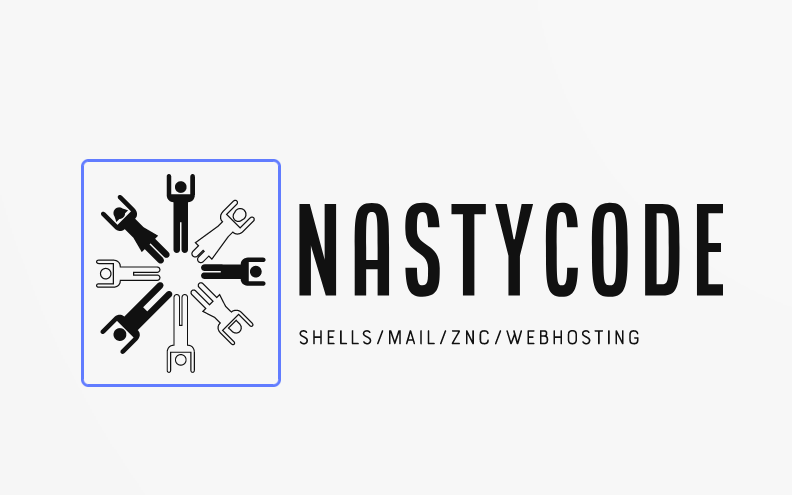Icecast
Icecast is a modular free audio server, written in C++. Icecast itself is can't deal with audio formats and requires add-ons called "sources" to do. in this guide, we use ices as our source.
Installation
$ doas pkg_add ices-0.4p12 icecast
edit /var/icecast/icecast.xml
<icecast>
<location>Earth</location>
<admin>username</admin>
<limits>
<clients>100</clients>
<sources>2</sources>
<queue-size>524288</queue-size>
<client-timeout>30</client-timeout>
<header-timeout>15</header-timeout>
<source-timeout>10</source-timeout>
<burst-on-connect>1</burst-on-connect>
<burst-size>65535</burst-size>
</limits>
replace username and Earth with your values.
<authentication>
<source-password>hackme</source-password>
<admin-user>username</admin-user>
<admin-password>hackmemore</admin-password>
</authentication>
<shoutcast-mount>/shoutcast</shoutcast-mount>
replace source-passowrd and admin-password with a secure passoword and chanage username to your prefered value.
<hostname>example.com</hostname>
<listen-socket>
<port>8000</port>
<bind-address>0.0.0.0</bind-address>
</listen-socket>
<listen-socket>
<port>8080</port>
</listen-socket>
<listen-socket>
<port>8443</port>
<ssl>1</ssl>
</listen-socket>
replace example.com with your domain.
note that icecast can only listen to IPv4 or IPv6 (and not both)
<mount type="normal">
<mount-name>/radio</mount-name>
<public>0</public>
</mount>
<fileserve>1</fileserve>
each stream on icecast is called a mount, we will connect to mounts using our sources
<paths>
<basedir>/var/icecast</basedir>
<logdir>/log</logdir>
<webroot>/web</webroot>
<adminroot>/admin</adminroot>
<pidfile>/var/run/icecast.pid</pidfile>
<alias source="/" destination="/status.xsl"/>
<!-- <ssl-certificate>/var/icecast/etc/icecast.pem</ssl-certificate> -->
</paths>
here we configure paths, and ssl for port 8443. note that ssl certificate should have both private and public cert on same file. you can do that using:
# cat /path/to/public/cert.pem /path/to/private/key.key > /var/icecast/etc/icecast.pem
you might need to change permissions afterwards.
and that will create it on /var/icecast/etc/icecast.pem
<logging>
<accesslog>access.log</accesslog>
<errorlog>error.log</errorlog>
<!-- <playlistlog>playlist.log</playlistlog> -->
<loglevel>3</loglevel> <!-- 4 Debug, 3 Info, 2 Warn, 1 Error -->
<logsize>10000</logsize> <!-- Max size of a logfile -->
</logging>
<security>
<chroot>1</chroot>
<changeowner>
<user>_icecast</user>
<group>_icecast</group>
</changeowner>
</security>
</icecast>
now, run and enable icecast
$ doas rcctl enable icecast $ doas rcctl start icecast
Sources
There are multiple sources available for icecast, ezstream and ices being developed by xiph community, which happens to be same community behind icecast too. ezstreams appears to be somewhat more modern, easier to configure and more featureful.
ezstream
First you need to install ezstream itself:
$ doas pkg_add ezstream
here is a sample configuration file:
<?xml version="1.0" encoding="UTF-8"?>
<ezstream>
<servers>
<server>
<hostname>127.0.0.1</hostname>
<password>hackme</password>
</server>
</servers>
<streams>
<stream>
<mountpoint>/radio</mountpoint>
<format>Ogg</format>
</stream>
</streams>
<intakes>
<intake>
<filename>playlist.m3u</filename>
</intake>
</intakes>
<decoders>
<decoder>
<name>OggDec</name>
<program>oggdec -R -b 16 -e 1 -s 1 -o - @T@</program>
<!-- File extensions to use this decoder for -->
<file_ext>.ogg</file_ext>
<file_ext>.oga</file_ext>
</decoder>
<decoder>
<name>MadPlay</name>
<program>madplay -b 16 -R 44100 -S -o raw:- @T@</program>
<file_ext>.mp3</file_ext>
</decoder>
<decoder>
<name>Flac</name>
<program>flac -s -d --force-raw-format --sign=signed --endian=little -o - @T@</program>
<file_ext>.flac</file_ext>
</decoder>
<decoder>
<name>AAC</name>
<program>faad -d -f 2 -w @T@</program>
<file_ext>.m4a</file_ext>
</decoder>
</decoders>
</ezstream>
adjust servers, source, and intakes as your needs.
decoders are needed to handle input audio files, and may need some extra programs to be installed (madplay, etc).
afterwards you need to generate a playlist (in m3u format), fortunately m3u format is quite simple:
$ find /path/to/your/music/library >> playlist.m3u
it will also include directories too, but ezstream will skip them:
ezstream[26202]: /path/to/your/music/library cannot determine file type
finally, to run ezstream:
$ ezstream -c ezstream.xml
for further example configurations ezstream also ships with some samples,
they are located in /usr/local/share/examples/ezstream.
Ices
Currently there are two versions of Ices on OpenBSD repos, one is 0.4 and another one is 2.0
version 2.0 only supports ogg files and version 0.4 supports both ogg and mp3 formats
but it is quite old and might have security issues, if you can, please use ezstream, we will show how to use version 0.4 nonetheless.
take a backup of /etc/ices.conf:
$ doas cp /etc/ices.conf /etc/ices.conf.bk
Open /etc/ices.conf
<?xml version="1.0"?>
<ices:Configuration xmlns:ices="http://www.icecast.org/projects/ices">
<Playlist>
<File>/etc/playlist.m3u</File>
<Randomize>1</Randomize>
<Type>builtin</Type>
<Module>ices</Module>
<Crossfade>4</Crossfade>
</Playlist>
<Execution>
<Background>0</Background>
<Verbose>0</Verbose>
<BaseDirectory>/tmp/</BaseDirectory>
</Execution>
<Stream>
<Server>
<Hostname>localhost</Hostname>
<Port>8000</Port>
<Password>hackme/Password>
<Protocol>http</Protocol>
</Server>
<Mountpoint>/radio</Mountpoint>
<Name>My radio</Name>
<Genre>Music</Genre>
<Description>This is my radio</Description>
<Bitrate>128</Bitrate>
<Channels>2</Channels>
</Stream>
</ices:Configuration>
ices accepts m3u playlists, so you may use same script we used for ezstream playlists
$ find /path/to/your/music/library | egrep '(ogg|mp3)$' | doas tee -a /etc/playlist.m3u
note that they can include spaces as well. afterwards, run ices
$ doas ices -c /etc/ices.conf
then you can point your media player or browser to http://example.com:8000/radio and enjoy.
MPD
We could use mpd to livestream with Icecast.
First, install mpd & mpc:
$ doas pkg_add mpd mpc
Edit /etc/mpd.conf
# Files and directories ####################################################### # # This setting controls the top directory which MPD will search to discover the # available audio files and add them to the daemon's online database. This # setting defaults to the XDG directory, otherwise the music directory will be # be disabled and audio files will only be accepted over ipc socket (using # file:// protocol) or streaming files over an accepted protocol. # music_directory "/please-configure-your-music_directory"
Replace /please-configure-your-music_directory to your path to Music folders. Eg. /home/user/Music
audio_output {
type "shout"
encoder "vorbis" # optional, vorbis or lame
name "My Shout Stream"
host "localhost"
port "8000"
mount "/radio"
password "hackme"
# quality "5.0"
bitrate "128"
format "44100:16:1"
# protocol "icecast2" # optional
# user "source" # optional
description "My Stream Description" # optional
url "http://example.com" # optional
genre "jazz" # optional
public "no" # optional
# timeout "2" # optional
# mixer_type "software" # optional
}
Change some values according your needs. Then, Enable & start mpd daemon
$ doas rcctl enable mpd $ doas rcctl start mpd
Now, populate the database. Depending on how many tracks are in your library this may take a while. The -w makes it wait until it's finished.
$ mpc -w update
Next, make a playlist
$ mpc add /
Then start playing
$ mpc play
To make the playlist randomly play for evermore.
$ mpc random $ mpc repeat
And finally, visit http://example.com:8000/radio and enjoy.
